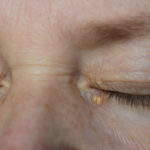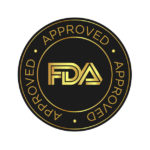Newly Revealed Health Risk Linked to Fatty Liver Disease
Raising the demand for colonoscopies, scientists have found a clear link between non-alcoholic fatty liver disease and colon cancer.
Many of the estimated 25 percent of American adults living with non-alcoholic fatty liver disease (NAFLD) do not yet know of their condition. The good news for those who are aware of their liver’s excess baggage is that it is possible to reverse a fatty liver before it gets too severe. The not so good news is that new research shows a heightened risk of colon cancer in people with NAFLD.
About Non-Alcoholic Fatty Liver Disease
Non-alcoholic fatty liver disease is a term used to describe the accumulation of fat in the liver of people who drink little or no alcohol. Non-alcoholic fatty liver disease (NAFLD) is the most common liver disease in the United States and is also a common cause of abnormal liver tests. NAFLD describes two conditions; the first is a mild condition, while the second is its progression to a more severe disease.
• Mild Condition – Fatty liver, also known as steatosis, is an accumulation of fat in the liver that typically does not cause liver damage.
• More Severe Illness – Non-alcoholic steatohepatitis (NASH) is the accumulation of fat in the liver accompanied by hepatic inflammation. Scar tissue can form in the liver with NASH, which can progress to cirrhosis or liver cancer.
Because steatosis rarely illicit any symptoms, it is usually discovered from abnormal liver tests, a liver ultrasound or CT scan in people with normal liver enzymes.
Clearly associated with obesity and diabetes, NAFLD’s only known risk factors are high blood sugar and blood lipid levels. Not surprisingly, people with NAFLD often have resistance to the normal action of insulin, a hormone critical in the processing of sugar and fat. Increased insulin leads to fat in the liver. Currently, there is no proven treatment for NAFLD. Luckily, identification of a fatty liver before inflammation and scarring occurs can inspire a person to make any medical choices or lifestyle changes necessary to reverse his or her condition.
New Risk Associated with NAFLD
The association between fatty liver disease and obesity and diabetes has been clearly established, but a new study published in a March 2011 edition of the Journal of Internal Medicine demonstrates that NAFLD also raises the risk of developing colon cancer. Andreas Stadlmayr, MD, and colleagues from Austria evaluated whether or not NAFLD was an independent risk factor for colon cancer.
The researchers evaluated over 1,200 patients who underwent a screening colonoscopy – the most reliable method for detecting colon cancer. They found that the men and women with NAFLD had a significantly higher rate of pre-cancerous tumors in the colon as well as a higher rate of cancerous tumors in the colon. The authors concluded that their findings suggest that detecting fatty liver on ultrasound should heighten the awareness for referral to screening colonoscopy.
About Colon Cancer and Colonoscopy
Known formally as colorectal carcinoma, colon cancer can occur anywhere in the colon or rectum. Together, the colon and rectum form a long, muscular tube called the large intestine. Colorectal carcinoma is the third most frequent cancer in adult men and the second most common in adult women, with about 150,000 cases diagnosed in the United States annually. Symptoms of colon cancer usually include changes in bowel habits such as constipation, diarrhea, bloating or pain with bowel movements. In addition, people may have an abdominal mass, weight loss, decreased appetite and blood in their stool.
According to the American Cancer Society (ACS), the majority of colorectal cancer cases could be prevented by applying existing knowledge about cancer prevention and by increasing the use of established screening tests, such as the colonoscopy. “The value of early detection has become a topic of wide debate for some cancers,” said Edward Partridge, MD, national volunteer president of the ACS. “But for colorectal cancer, there should be no debate,” Dr. Partridge said in a statement. “Screening for colon cancer saves lives.”
Despite the evidence supporting the effectiveness of colon cancer screening, only about half the American population 50 years or older is current for recommended testing. Although there are a variety of tests used to assess colon health, colonoscopy is one of the preferred methods.
Colonoscopy is a procedure that enables an examiner to evaluate the inside of the colon. The colonoscope is a four-foot-long, flexible tube about the thickness of a finger with a camera and a source of light at its tip. The tip of the colonoscope is inserted into the anus and slowly advanced into the rectum and through the colon to look for abnormalities in the tissue.
With one quarter of adults having excess fat in their liver, the high prevalence of NAFLD in American society now harbors a newly identified danger. First of all, identifying a fatty liver early is crucial to return the liver to a healthy state. Second, because those who do have NAFLD are at higher risk of colon cancer, they are encouraged to undergo screening for colorectal carcinoma via colonoscopy or comparable procedure.
http://www.doctorslounge.com/index.php/news/pb/19230, Nonalcoholic Fatty Liver Disease Tied to Higher CRC Risk, Retrieved April 13, 2011, Doctors Lounge, 2011.
http://www.liversupport.com/fattyliver.htm, Fatty Liver, NAFLD and NASH, Retrieved April 16, 2011, Natural Wellness, 2011.
http://www.liversupport.com/wordpress/2006/10/3-supplements-proven-to-fight-fatty-liver-disease/, Fatty Liver Disease Remedies, Nicole Cutler, L.Ac, Retrieved April 16, 2011, Natural Wellness, 2011.
http://www.medicinenet.com/colonoscopy/article.htm, Colonoscopy, Jay W. Marks, MD, Retrieved April 13, 2011, MedicineNet, Inc, 2011.
http://www.medscape.com/viewarticle/738728, Screening for Colorectal Cancer Saves Lives -- No Debate, Says ACS, Zosia Chustecka, Retrieved April 15, 2011, Medscape Medical News, 2011.
http://www.ncbi.nlm.nih.gov/pubmed?term=NAFLD%20CRC, Nonalcoholic fatty liver disease: an independent risk factor for colorectal neoplasia, Stadlmayer A, et al, Retrieved April 13, 2011, Journal of Internal Medicine, March 2011.
http://www.stjude.org/stjude/v/index.jsp?vgnextoid=816d061585f70110VgnVCM1000001e0215acRCRD&vgnextchannel=bc4fbfe82e118010VgnVCM1000000e2015acRCRD, Disease Information - Solid Tumor: Colorectal Carcinoma, Retrieved April 15, 2011, St. Jude Children’s Research Hospital, 2011.












